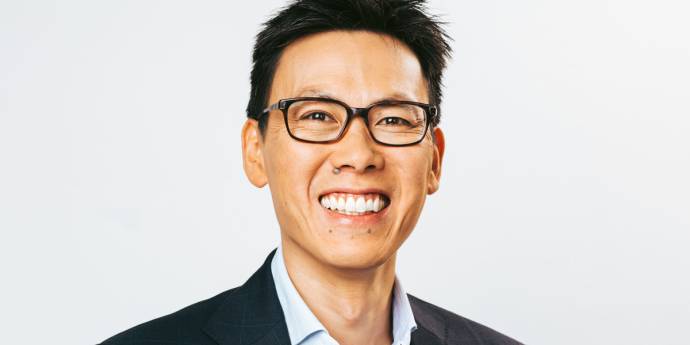What I'm reading – Suneil Connor
Time is a hugely important commodity for leaders - this week's book provides advice on how to make the most of it.

Co-founder of corporate law firm Flacks and Wong, Auckland-based lawyer Daniel Wong MInstD is no stranger to business.
Growing up in Wellington, his parents’ strong work ethic running the family business, Molesworth Fruit Supply, inspired his interest in pursuing a finance degree, followed by a law degree, at Victoria University.
He carved out a career in New Zealand before heading overseas where he worked at prestigious London law firm Freshfields Bruckhaus Deringer LLP for five years.
A lifelong interest in classical music (he played violin from the age of four and was a member of the Wellington Youth Orchestra), saw him appointed to the board of the New Zealand Symphony Orchestra (NZSO) in 2016.
He is currently a board member of Auckland Grammar School and a board trustee of the New Zealand Symphony Orchestra Foundation – a charitable trust established in 1996 as a separate entity from the NZSO. Through its endowment funds, the foundation aims to support the NZSO and its musicians in their artistic endeavours and development.
In 2021, Daniel was selected for the Institute of Directors’ Mentoring for Diversity programme and he is a member of the NZ Markets Disciplinary Tribunal (an independent regulatory body that determines whether an issuer or market participant has breached NZX’s market rules).
An avid reader, this week he shares a book that explores human progress through six materials that built our world – and will transform our future.
I’ve recently read Material World by Ed Conway.
Engaging and thought-provoking.
From my five years residing in London, I have fond memories of the salmon-hued pages of the Financial Times/FT Weekend. For that reason, my go-to for non-fiction reading recommendations is their Business Book of the Year short/longlists. Material World featured in the 2023 six-book shortlist.
The significant economic, social and geopolitical challenges required to achieve carbon net-zero.
Being more open to persuasion, and to different points of view.
Reading widely is an important, and interesting, part of the learning journey – to encounter and be challenged by new ideas and perspectives, and learn from past corporate failures. For example, WeWork - Billion Dollar Loser; Blackberry – Losing the Signal; Purdue Pharma – Empire of Pain concerning the opioid epidemic; General Motors – Janesville: An American Story; Theranos – Bad Blood: Secrets and Lies in a Silicon Valley Startup; Boeing 737 MAX – Flying Blind; and 1MDB – Billion Dollar Whale.
To assist my day job – where venture capital is becoming more prominent – I have thoroughly enjoyed The Power Law: Venture Capital and the Art of Disruption, which chronicles the birth and development of venture capital, and Secrets of Sand Hill Road: Venture Capital and How to Get It, which dives deep into deal terms/rationale and market standards – at least from a Silicon Valley VC perspective.
Everyone could benefit from learning about the history of these six materials: sand, salt, iron, copper, oil and lithium, and how crucial they are in our current, and future, world.
Outside of business or governance, including business leader biographies, my bookshelf has a peppering of behavioural economics: Thinking, Fast and Slow by Nobel Prize-winner Daniel Kahneman; Misbehaving by Michael Lewis, along with mindset and personal development books – Black Box Thinking; Grit: the Power of Passion and Perseverance; Atomic Habits by James Clear; Moonwalking with Einstein: The Art and Science of Remembering Everything; and Range: How Generalists Triumph in a Specialized World.
I also have a shrinking collection of cookbooks and the Cormoran Strike series.
And, finally, my wife did very well recently to spot Ultimate Skiing & Snowboarding on the Epsom Library bookshelf.
Climate change, one of the themes of Conway’s Material World, and the impact of technology, including generative AI on the future of work.
The natural human inclination at times (perhaps unconsciously) to favour board cohesion over robust debate – potentially leading to groupthink.
More ad hoc or scheduled time to think big picture/strategically, so that we can more regularly step back and think about what could really impact the organisation.
If there is a book on your radar that you’d like to share, send an email to: sonia.yee@iod.org.nz